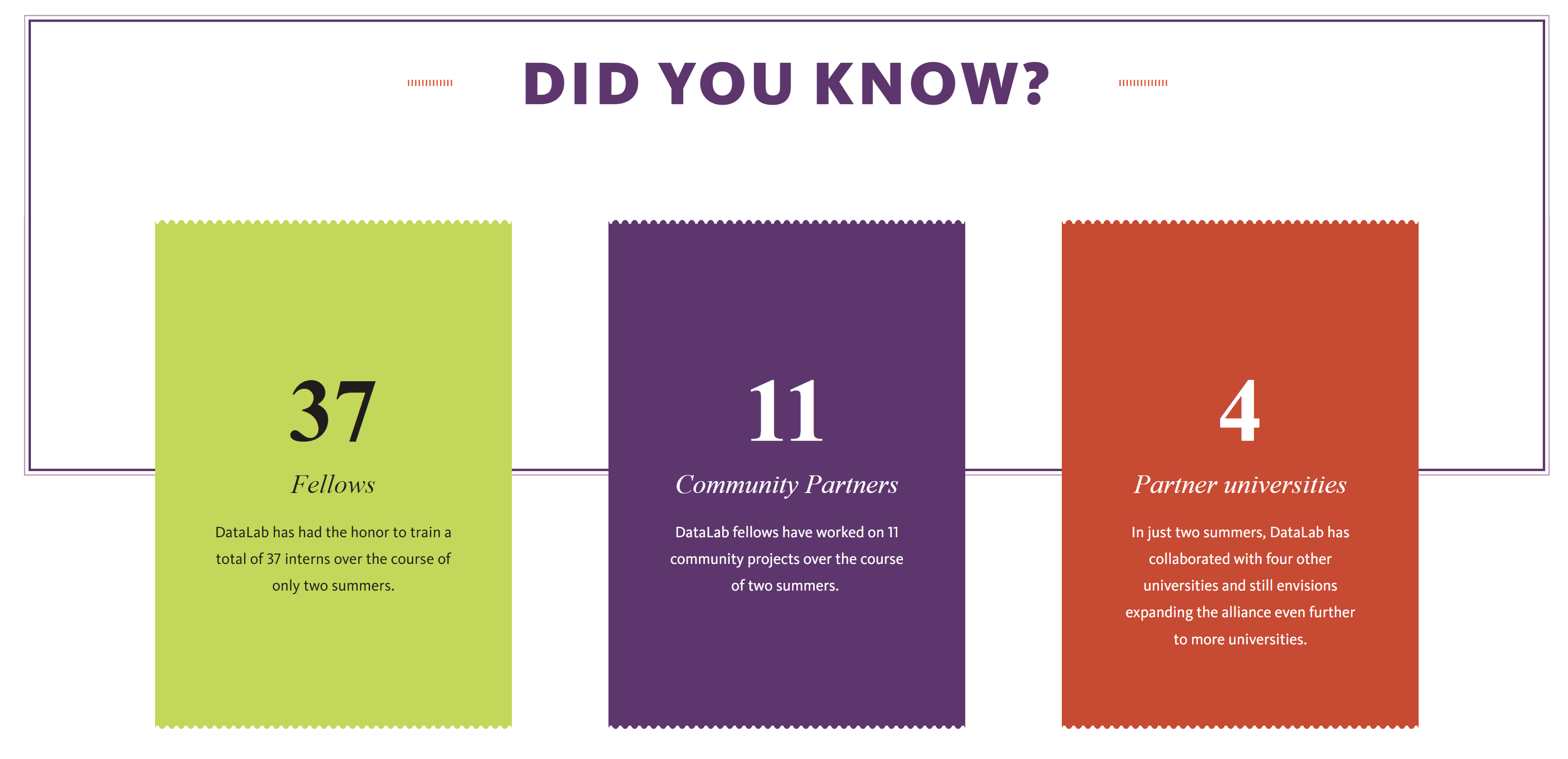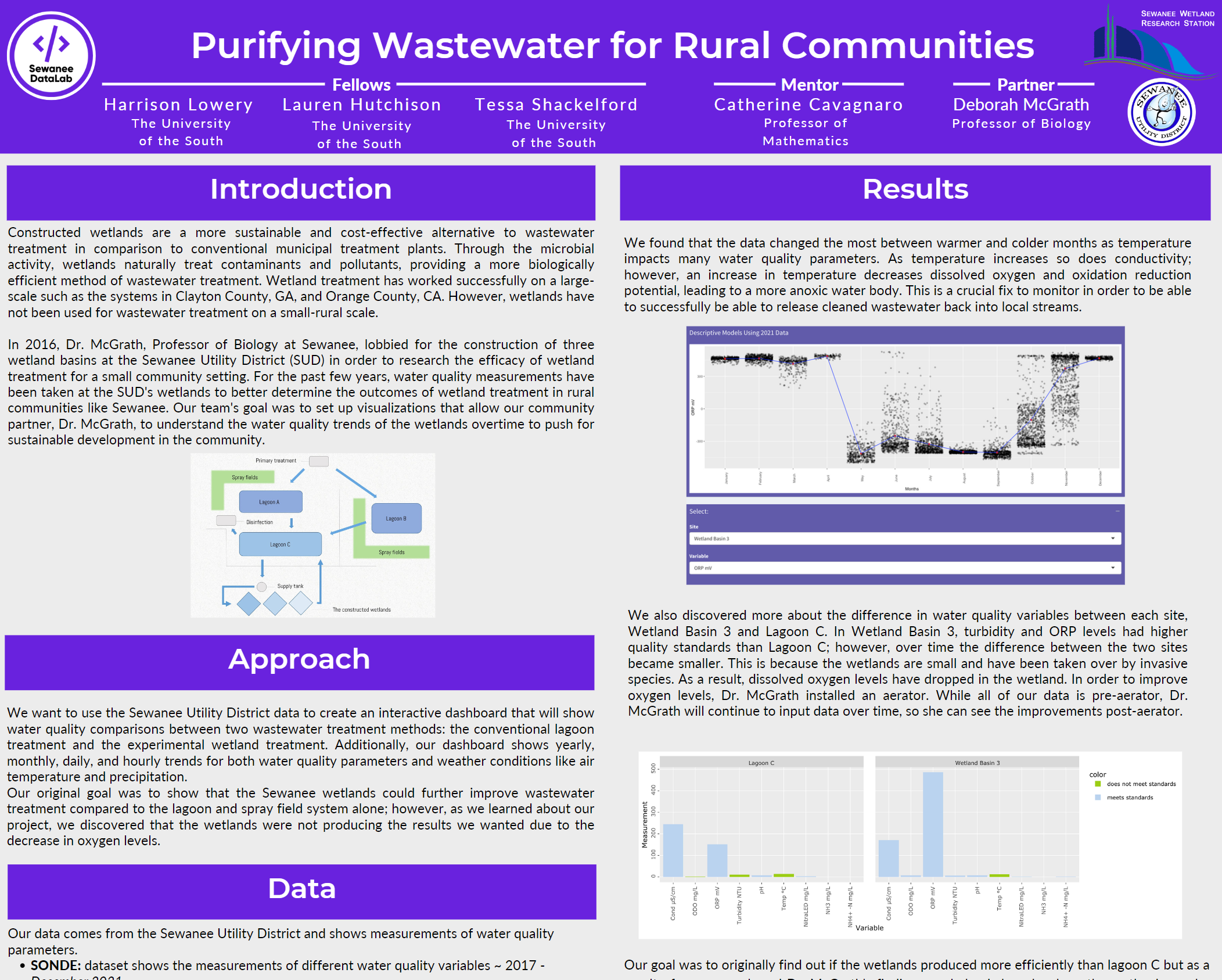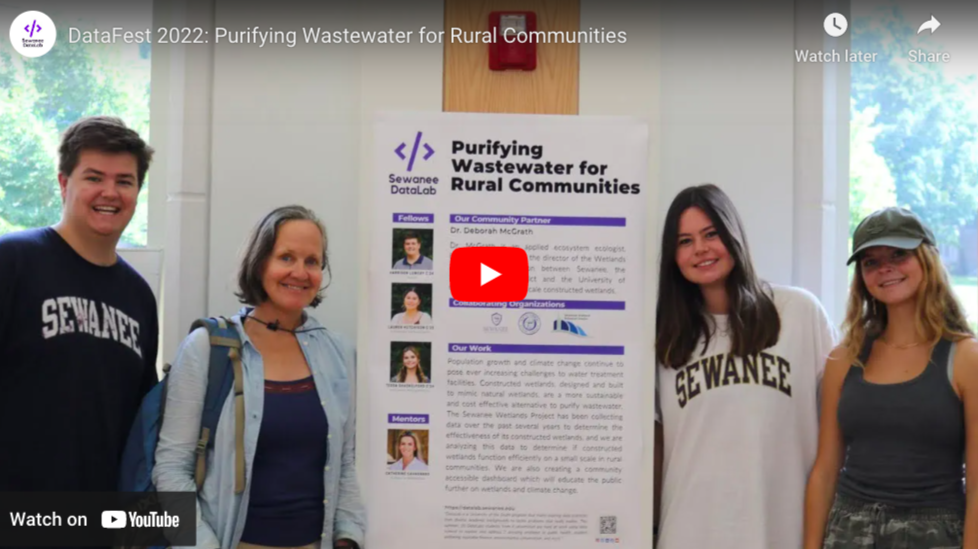Sewanee DataLab 2022: Purifying Wastewater for Rural Communities
Theme: Public and Critical Infrastructure
The Sewanee DataLab makes the power of data analytics accessible for the greater good by training and supporting
a new generation of data scientists who work exclusively on social impact projects.

The Dashboard
In 2022, a team of three student fellows, a professor (Deborah McGrath), researcher, and a mentor from Sewanee: The University of the South collaborated with the Sewanee Wetlands Project to create an interactive dashboard, using data collected by the Sewanee Utility District, to educate the public about the wetlands and climate change.
The dashboard displays water quality comparisons between two wastewater treatment methods: the conventional lagoon treatment and the experimental wetland treatment. In addition, the dashboard shows yearly, monthly, daily, and hourly trends for both water quality parameters and weather conditions, such as air temperature and precipitation.
The Data
The data comes from the Sewanee Utility District and shows measurements of water quality parameters.
- SONDE: Dataset shows the measurements of different water quality variables from around 2017 to December 2021.
- SUD: Dataset shows weather data, such as wind speed and air temperature from around October 2020 to December 2021.
- OESS: Dataset shows temperature and rainfall measurements collected from the Office of Environmental Stewardship and Sustainability (OESS) from January 2021 to January 2022.
Results
The original goal was to determine if the wetlands could improve wastewater treatment more efficiently than lagoon C. Our research and Dr. McGrath’s findings revealed how the wetland’s water quality variables changed over time and helped the team work toward seeing how the wetlands should be fixed to meet water standards set by the Environmental Protection Agency (EPA).
Student Q&A
Lauren Hutchison, Class of ’22
I found Sewanee’s DataLab through a recommendation from a friend who participated in its inaugural year. I had previously had some experience with coding, at the time a love-hate relationship, from using RStudio for a capstone project. I was by no means a great coder and had no idea at the time how much you could do with coding. DataLab is a program that begins with a bootcamp for coding that transitions into working on individual community projects. To my surprise, my knowledge of coding did not extend beyond the first day’s instruction. For the next two weeks, I learned more than I ever thought I would know about using RStudio. The boot camp instructors really went above and beyond during this time. I felt as though I not only learned how to write these codes but also was taught why and when to use them. My understanding of sorting data and creating visuals efficiently and effectively became much deeper.
After the boot camp ended, we were sorted into project groups based on our interests. I was in the Sewanee Wetlands group, which worked with Dr. Deborah McGrath on her wetland experiment at the Sewanee Utility District. This was actually my first choice, as I am an environment and sustainability major who has always had an interest in water usage. The Sewanee Wetlands Project looks at the effectiveness of an artificial wetland in Sewanee that intends to help treat our wastewater in a sustainable way. Dr. McGrath was excellent to work with and provided a great foundation for us to work on. Her main task for our group was to create a dashboard that would provide visuals of her data that can be used now and in the future. She gave us some freedom to customize the dashboard and set it up as we thought it should go. It was at this point that you could really tell that the boot camp instruction was of high quality, as each group was able to go off on their own and begin working on their respective projects.
Mentors and instructors were available to help when we became stuck, but I found myself really enjoying the problem-solving aspect associated with writing code. While the project did hit a few bumps along the way, I am really quite proud of the outcome. My group members and I, having limited to no coding experience, were able to produce a dashboard product that will allow Dr. McGrath to use it now and going forward, providing visuals that might one day be used to help make our wastewater cleaning process sustainable.
My first word of advice for those interested in this field would be don’t be afraid to get started. As someone who found a love for coding and computer science late in my college education, it is very possible to get into this field without a strong background in computer science. Completing any project really only requires a passion for it. I would also recommend that you utilize all the resources available to you. My project really could not have been completed without the help of my mentors and community partners, who could not have been more supportive and helpful. Lastly, have fun with it. Get creative and produce something that you are proud of. Just because you want something to be professional does not mean it has to be boring.


